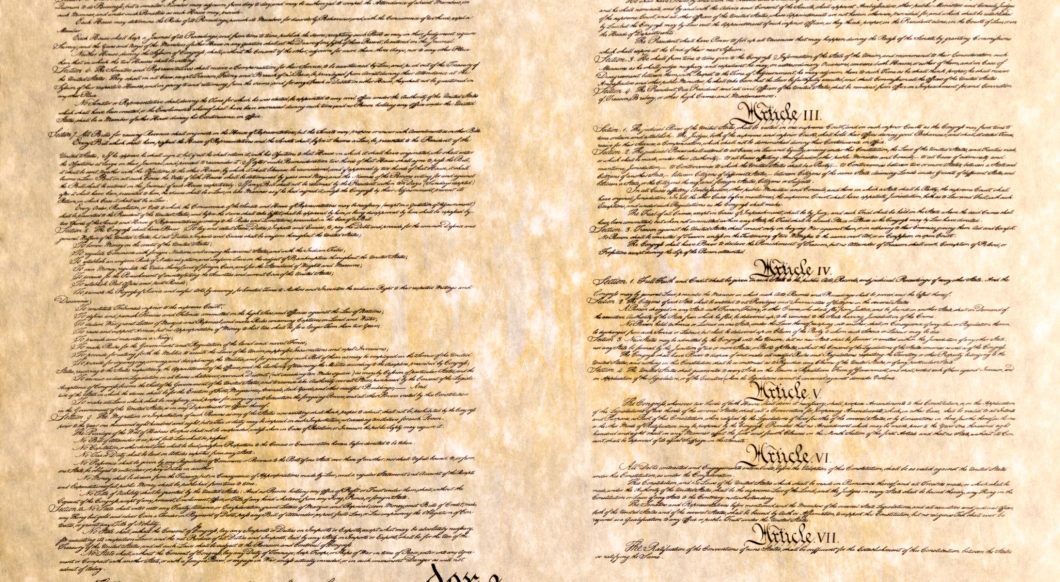With COVID-related spending exacerbating state finances, we may be in for a major development of Eleventh Amendment doctrine.
In Defense of the Supreme Court’s First Constitutional Law Decision
Last Monday, the U.S. Supreme Court held in Franchise Tax Board of California v. Hyatt, in a 5 to 4 opinion by Justice Clarence Thomas, that a state can maintain its sovereign immunity from lawsuits in other states, reversing a prior decision the Court issued in 1979 in Nevada v. Hall. Monday’s decision ended a nearly-three-decades-long lawsuit brought against California in a Nevada court by a wealthy inventor who had moved from California to Nevada. The plaintiff had sued California for torts he alleged had been committed against him during an audit and he had initially won a massive damages award, although the damages had been whittled down during years of litigation. In fact, Monday’s decision was the third time the case had reached the nation’s highest court.
The 1979 Nevada v. Hall decision had allowed a suit against Nevada in a California court involving a highway accident caused by a state-owned bus. The 1979 decision held that the Constitution allows states to provide immunity for other states, but does not require them to do so. Last week’s ruling requires states to provide immunity for other states.
Justice Thomas maintained in the Franchise Tax Board decision that the 1979 decision “misreads the historical record and misapprehends the ‘implicit ordering of relationships within the federal system necessary to make the Constitution a workable governing charter and to give each provision within that document the full effect intended by the Framers.’” He also insisted that the 1979 case was “irreconcilable with our constitutional structure and with the historical evidence” showing that states are endowed with immunity from private lawsuits.
Importantly, the 1979 case that the Supreme Court has overruled was not the only precedent on the subject. In fact, the Court’s first full-scale constitutional law decision, Chisholm v. Georgia, decided in 1793, was also in the way. At issue in Chisholm was whether a citizen of one state, South Carolina, could bring suit in federal court against another state, Georgia. The subject matter of the suit was a sizable debt that the state of Georgia had incurred in purchasing military supplies from Chisholm’s testator during the American Revolution.
At the time Chisholm was decided, the Supreme Court followed the English appellate court practice of “seriatim” opinion writing in which all of the participating judges wrote, and delivered orally, individual opinions explaining their views on a case. Four of the five members of the Court that decided Chisholm held that the Constitution abrogated the states’ sovereign immunity and granted federal courts the affirmative power to hear disputes between private citizens and states. Justice James Iredell was the only dissenter. Iredell is highly regarded by modern students of the early Court. His opinion in Chisholm, however, was more appropriate for the halls of Congress than it was for a court of law. That is to say, Iredell ignored the plain words of the Constitution to press for a desired political result. Most notably, Iredell ignored the second paragraph of Article III, section 2, which states that in cases “in which a state shall be a party the Supreme Court shall have original jurisdiction.” Iredell emphasized instead the Judiciary Act of 1789, essentially arguing that the Court’s jurisdiction was not self-executing and that Congress had not executed it in that, or any other, statute. It took Iredell twenty-one pages in Dallas’s Reports to reach this conclusion, about half of which was devoted to a discussion of the law and practice of England. The point of the latter discussion seems to have been that the Court was bound by the common law relative to suits against sovereigns.
Justice James Wilson, the most scholarly of the justices on the Court at the time, spent most of the thirteen pages of his seriatim opinion ranging far and wide over history and the basic concepts of sovereignty, the state, and man’s relation to the state. He invoked Reid, Bacon, Cicero, William the Conqueror, the Ephori of Sparta, Homer, Demosthenes, Louis XIV, Bracton, and the author of the Mirror of Justice. Wilson’s purpose was to show that in the United States the people are sovereign. Consequently, the state of Georgia could be sued. Almost lost among Wilson’s elaborate discussion was the Constitution itself. In fact, Wilson devoted only a few lines of his opinion to the document he was charged with interpreting. When he did turn to the Constitution, he found the answer to the question before the Court readily available. He concluded the fact that Georgia could be sued in federal court “rests not upon the legitimate result of fair and conclusive deduction from the constitution: it is confirmed, beyond all doubt, by direct and explicit declaration of the constitution itself.”
Chief Justice John Jay’s opinion also contained elaborate references to history and philosophy. For instance, Jay devoted a sizable portion of his opinion to comparing the differences of the feudal governments of Europe with governments by compact. It was not until the end of his opinion that the chief justice, like the other members of the majority, concluded that the Constitution’s express reference to federal jurisdiction over suits involving states made Georgia amenable to suit by a citizen of South Carolina.
The opinions of John Blair and William Cushing in the Chisholm case have been called, among other things, “unimaginative.” It is more accurate to say they stayed on point. Blair began his opinion with a subtle expression of disapproval of the rambling opinions of Iredell, Wilson, and Jay: Blair said he would pass over the “various European confederations. . . . The Constitution of the United States is the only fountain from which I shall draw.” Blair was true to his word. In fact, he needed but three pages to decide the case, and his decision was based on a plain reading of the words of the Constitution.
William Cushing’s opinion was similar to Blair’s in both tone and method. He, too, began by saying, “the point turns not upon the law or practice of England, . . . nor upon the law of any other country whatever” and he, too, emphasized the words of the Constitution. Put simply, Cushing’s opinion is a straightforward example of textual analysis. To Cushing, the clause in question, “between a state and citizens of another state,” needed to be read in conjunction with the clause that immediately preceded it, “to controversies between two or more states”—a clause that plainly envisioned the state as a defendant. If any exception was intended in the suability of a state, Cushing insisted, it would have been written into the Constitution. Cushing drove this point home by explaining that another clause in the relevant section subjected foreign states to suit in federal court by American citizens. Thus, the “sovereignty” argument was of no avail, Cushing concluded, unless one accepted the improbable argument that the clause meant “we may touch foreign sovereigns but not our own.”
I say all of this because Justice Thomas spent a lot of time in Monday’s opinion arguing that Chisholm was a “blunder” and was “incorrect.” Indeed, he insisted that Chisholm had “precipitated an immediate ‘furor’ and ‘uproar’ across the country” and that the “speedy” passage of the Eleventh Amendment demonstrates that “the Constitution was understood, in light of its history and structure, to preserve the States’ traditional immunity from private suits.”
While it is true that the Eleventh Amendment overturned Chisholm in 1795, it did so by altering the text of Article III that Justice Cushing in particular highlighted. In short, at the time the Constitution was written and ratified there was no free-floating principle of sovereign immunity that denied to those wronged by a state judicial recourse to seek a remedy. Unfortunately, last Monday the Supreme Court said there is now.



